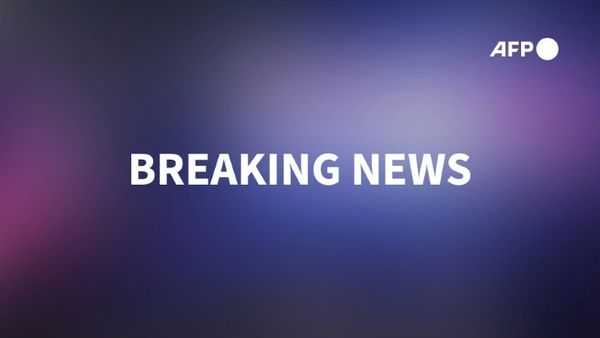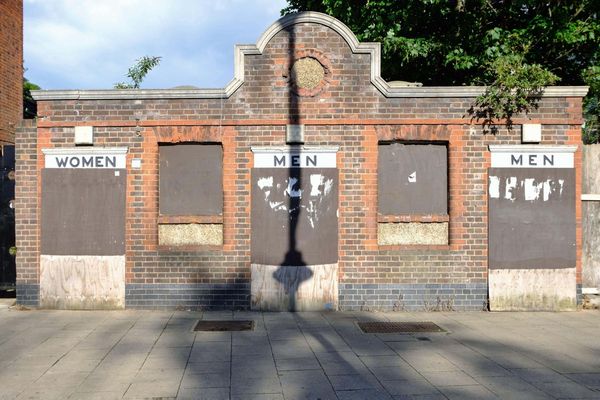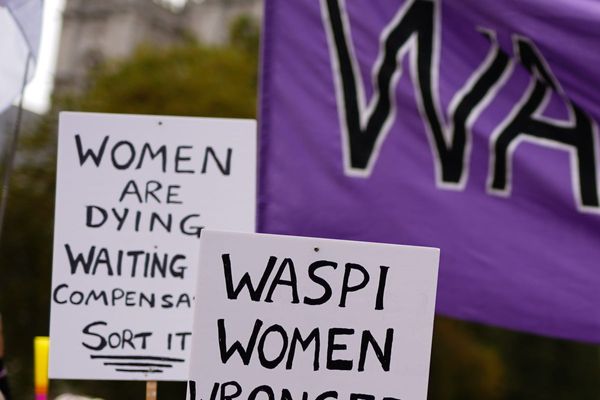
Former President Donald Trump has a history of eyebrow-raising statements about Russia that resurfaced this week as he finally moved to break his weeks-long silence about the growing tensions between Kiev and Moscow.
As the 45th president aims criticism at Joe Biden for supposedly failing to reign in Vladimir Putin, his critics and members of the media have questioned how his claim that he would stand up to Mr Putin and Russia’s aggression gels with the often friendly tone he struck during the 2016 campaign and throughout his presidency.
In some cases, that friendly attitude towards the leaders in Moscow has been combined with foreign policy positions that those same critics have argued for years play into Mr Putin’s hands while putting the US or its allies in a weaker position. Combined with the leftover air of mistrust that surrounds the former president as a result of the Russian government’s work to denigrate his opponent, Hillary Clinton, in 2016, the various factors have led to open accusations from some in the Democratic Party accusing Mr Trump of cozying up to Mr Putin for political gain at the direct expense of the United States.
“This president is dangerous. He’s in bed with Putin,” Congresswoman Maxine Waters sternly claimed in 2018.
Similar criticism was elicited from Rep Liz Cheney, a leading critic of Mr Trump and a member of the January 6 committee, this week as Mr Trump issued a number of statements praising the brilliance of the Russian strategy to send “peacekeeping” troops into separatist-occupied Donbas.
“Former President Trump’s adulation of Putin today – including calling him a “genius” – aids our enemies. Trump’s interests don’t seem to align with the interests of the United States of America,” she tweeted.
Mr Trump has long denied that he or his campaign ever worked with Russian officials, and an investigation by special counsel Robert Mueller found no evidence to support those claims that he did. His public statements, however, paint a picture of an isolationist president and Nato sceptic whose personal political interests were well served by maintaining a friendly relationship with Russia’s strongman leader.
Let’s take a look back at a few times where Mr Trump’s statements or policy positions appeared to benefit Russia’s interests at the expense of the US or western allies:
The Helsinki summit
Mr Trump’s most famous moment of breaking with US orthodoxy came in 2018 alongside Mr Putin in Helsinki, where the two leaders met for a bilateral meeting at the start of the US president’s second year in office.
What was hailed by his aides ahead of time as the US leader portraying strength on the international stage turned into damage control after Mr Trump, with no prompting from Mr Putin as the Russian leader stood next to him, sided with Russia’s explanation for hacking that occurred during the 2016 election.
Specifically, he told reporters he disagreed with the official assessment from the US intelligence committee that the Democratic National Committee was hacked by Russian-linked operatives to uncover information that would be politically damaging for Hillary Clinton.
"President Putin says it's not Russia. I don't see any reason why it would be," he told reporters at the time.
He added that he hoped the US and Russia would develop an “extraordinary relationship” under his presidency.
The first 2016 debate: Who’s to blame for DNC hack?
Donald Trump’s attempts to cast blame away from Russia for the 2016 hack of the Democratic National Committee also took centre stage for his first debate with Hillary Clinton that year, when he famously declared that his favoured geopolitical adversary China or even "somebody sitting on their bed that weighs 400 pounds” could have been the true culprits responsible for the theft and publication of emails and other data from the party.
Nato consternations
The former president’s comments about Nato were some of the biggest boons to Mr Putin during the four years of the Trump presidency as his US counterpart frequently trashed other countries taking part in the Nato alliance for their lack of contributions to the alliance’s military strength.
Mr Trump frequently criticised numerous members of the defensive pact, including Germany, for what he said were unfair contribution levels to the military alliance and caused friction between the US and European allies as a result.
In 2020, he ordered the pullback of more than 10,000 US troops from Germany, citing a long list of supposed grievances.
The G7 and Trump’s diplomatic fumbles
Nato allies were not the only ones to see complaints from Mr Trump during the latter’s presidency that served to divide US allies abroad.
In 2020 the US president said it was “common sense” to readmit Russia to the G7 – making it the G8 again – something the other members rejected. Russia was expelled from the group of wealthy countries after Mr Putin seized the Ukrainian region of Crimea in 2014.
He frequently threatened to end “unfair” trade deals with G7 allies and personally attacked Canada and its prime minister, Justin Trudeau, over dairy tariffs. He also threatened to slap tariffs on France, targeting the country’s wine exports.
One official at the International Crisis Group told Politico in 2019that the meetings of G7 leaders had become a “nightmare” under President Trump.
Trump flatters Russia’s government days before inauguration
One of Mr Trump’s most brazen moves came just days before he was inaugurated, in December of 2016. After the Obama administration took one of its last acts in office to slap sanctions on Russia for its election interference months earlier, the new president-elect took to his now-defunct Twitter to praise Mr Putin directly for not retaliating against the US, signaLling that his administration would take a very different stance towards the country.
"Great move on delay (by V. Putin) — I always knew he was very smart!" Mr Trump tweeted at the time.
Around the same time, he shared a warm-toned Christmas letter the Russian leader had sent him even before he had taken office.
"A very nice letter from Vladimir Putin; his thoughts are so correct," Mr Trump said at the time, referring to Mr Putin’s call to restore the US-Russia relationship that frayed under President Obama’s terms. "I hope both sides are able to live up to these thoughts, and we do not have to travel an alternate path."







